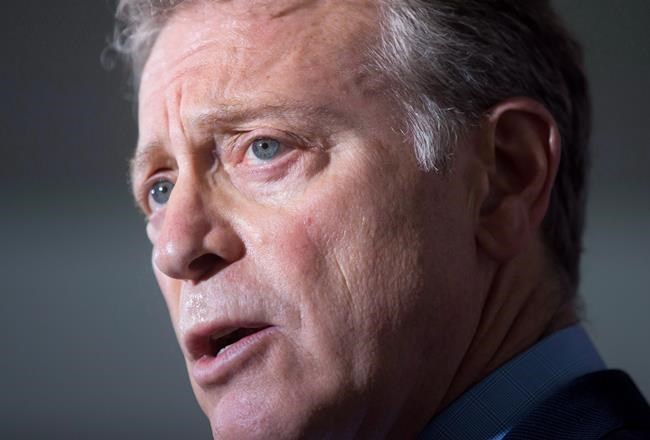It fell to Environment Minister George Heyman to comment Wednesday on a new initiative by Indigenous leaders to buy the Trans Mountain pipeline from the federal government.
His two-minute contribution was a study in how to glide past the fact that two core NDP beliefs may soon be smashing headlong into each other.
The government is utterly opposed to the pipeline expansion project, even though it’s constrained by law from actively blocking it. It’s also supportive of Indigenous rights and cognizant of the need to support First Nations economic opportunities.
That means a First Nations bid to buy a controlling stake in the pipeline is the definition of being between a rock and a hard place, when it comes to describing where it leaves the B.C. NDP government.
Heyman opened with complete indifference to the potential plight the government may find itself in.
“It’s not the business of the provincial government to intervene in a business deal ... it doesn’t change the nature of our responsibility to protect our environment, our coast, tens of thousands of jobs and a significant part of B.C.’s economy.”
Then he spent a moment confirming the government’s opposition to the pipeline. “It’s a bad project for B.C.”
But when he also started confirming the government’s fervent enthusiasm for supporting Indigenous self-determination and aboriginal pursuit of opportunity, the problems became obvious.
“Reconciliation is important and economic opportunities for Indigenous nations are important,” he said. He cited the government’s recent moves to turn over a percentage of gaming revenue to First Nations on a permanent basis, and its encouragement in them pursuing forestry ventures.
“There is a range of economic opportunities that can benefit First Nations and we’re looking constantly for ways to enhance that.”
Heyman, who was designated to speak for the government on the issue, said: “We support reconciliation and economic opportunities.”
But the kicker is this: The government also sees a responsibility to speak up “when we think a particular project is not in the interest of B.C. and threatens our environment, threatens jobs and threatens our economy.”
The message is that the NDP is all about supporting aboriginal economic development, but only if they agree with the projects that First Nations are undertaking.
That has more than a tinge of the paternalistic approach that has driven Indigenous leaders to distraction for years.
What highlighted the issue was a visit to Victoria by Shane Gottfriedson, a former elected First Nation chief from Kamloops. He’s the B.C. representative for an ambitious Indigenous group that is making the rounds, pitching the idea of aboriginal ownership of the pipeline.
The group’s name is loaded with nuances as far as the B.C. government is concerned. It’s Project Reconciliation.
The idea is to coalesce all or most of the 300 bands, from B.C. to Saskatchewan, into an entity that would buy into majority ownership of the pipeline, purchased by the federal government for $4.5 billion last year.
While buying the rights and the work to date on the expansion project is a gamble, it comes with the existing line, a reliable source of revenue for years to come.
Gottfriedson has talked to government staff about the idea, but had no luck pitching it to cabinet ministers. None met with him, although it’s not clear if a formal attempt was made.
Heyman’s response was made to reporters. He was well-received by the B.C. Liberal opposition, though, and said he’s also had good talks with the federal government and with new Alberta Premier Jason Kenney.
There are countless problems to solve before Project Reconciliation is announced as the new owner of the politically cursed pipeline. The big one is money, although Gottfriedson hinted that financial news is coming next week.
The other is organizing the Indigenous world into a viable entity. He said there are currently about a half-dozen Indigenous groups pursuing the idea independent of one another.
If Project Reconciliation or any of the others succeed, it would put the NDP in the awkward position of opposing something that ticks every single one of the boxes on their wish list for Indigenous progress.



